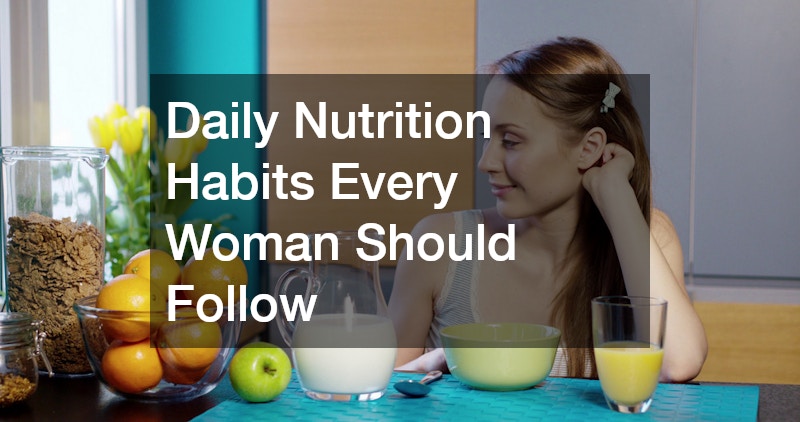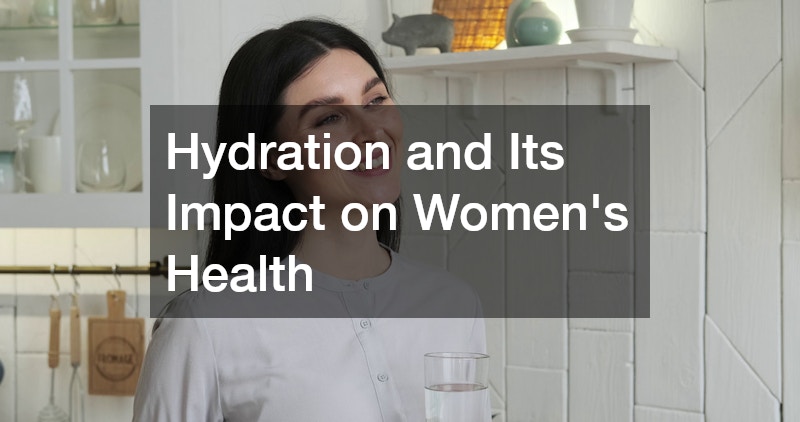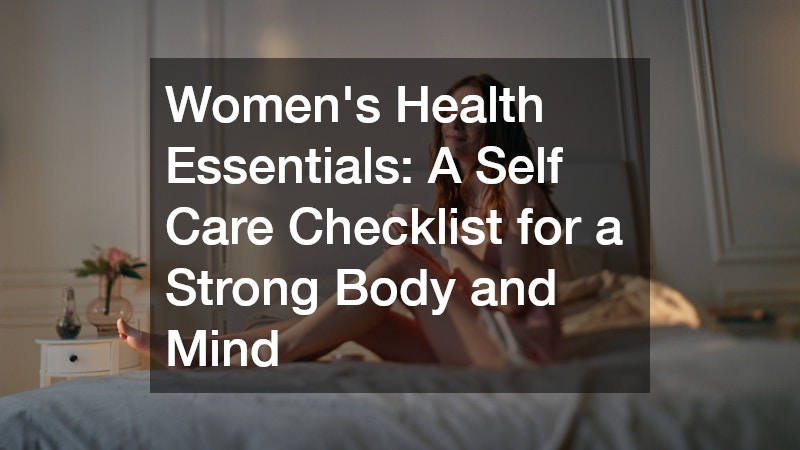In today’s fast-paced world, women often juggle multiple roles—career professional, caregiver, partner, friend, and more. While fulfilling these responsibilities, it’s easy to overlook personal health and well-being. Yet, maintaining both physical and mental health is essential not only for personal happiness but also for sustaining the energy needed to support others. Women’s health is unique, influenced by hormonal changes, reproductive health, and specific nutritional needs. This is why having a structured self care checklist can make all the difference.
This comprehensive guide is designed to help women prioritize their wellness from head to toe. From fitness and nutrition to mental health and preventive care, we’ll explore practical and science-backed strategies you can integrate into your daily routine. By the end, you’ll have a personal roadmap to achieve and maintain a strong body and mind.
Why a Self Care Checklist Matters for Women’s Health
Creating a self care checklist for women’s health isn’t about adding more tasks to an already busy schedule—it’s about making intentional choices that enhance longevity, resilience, and overall happiness. Women face unique health challenges such as hormonal fluctuations, higher risk of osteoporosis, and pregnancy-related changes. Without proactive self care, these can develop into chronic health issues later in life.
A checklist acts as a visual reminder to stay on track. It helps you monitor progress, identify gaps, and celebrate achievements. More importantly, it encourages balance—ensuring that both mental well-being and physical health get equal attention. This structure allows you to transition from reactive health management (treating symptoms) to preventive care (avoiding illness before it starts).
Daily Nutrition Habits Every Woman Should Follow

Nutrition forms the foundation of women’s health. The food you eat directly affects energy levels, hormonal balance, mental clarity, and disease prevention. Women’s nutrient needs change throughout life, particularly during adolescence, pregnancy, and menopause, making it crucial to adapt eating habits accordingly.
A balanced diet should include macronutrients (proteins, carbohydrates, and fats) in the right proportions, along with essential micronutrients such as calcium, iron, vitamin D, and folate. Hydration is equally important, as even mild dehydration can impact mood, concentration, and metabolism.
Checklist for Daily Nutrition:
- Eat a variety of fruits and vegetables (aim for 5–7 servings daily)
- Incorporate lean proteins like fish, chicken, legumes, and tofu
- Choose whole grains over refined carbohydrates
- Limit processed and sugary foods
- Include healthy fats from sources like avocado, nuts, and olive oil
- Drink at least 2 liters of water daily
- Limit alcohol and caffeine consumption
- Take supplements if recommended by a healthcare provider
The Role of Exercise in Maintaining a Strong Body and Mind
Exercise is one of the most powerful tools for supporting both physical and mental health. For women, regular physical activity can help regulate hormones, reduce stress, improve bone density, and prevent chronic diseases like heart disease and diabetes. It’s not just about weight management—it’s about longevity and quality of life.
A balanced fitness routine should include cardiovascular exercise, strength training, and flexibility work. Cardiovascular activities like walking, running, or cycling improve heart health and endurance. Strength training builds muscle, supports metabolism, and strengthens bones. Flexibility and mobility exercises, such as yoga or stretching, help prevent injury and improve posture.
Checklist for Weekly Exercise:
- 150 minutes of moderate aerobic activity OR 75 minutes of vigorous activity
- Two strength-training sessions targeting major muscle groups
- Daily stretching or mobility work
- Incorporate activities that you enjoy to stay consistent
- Schedule rest days for recovery
Sleep: The Overlooked Pillar of Women’s Health
Many women underestimate the power of quality sleep. Poor sleep affects mood, memory, immune function, and metabolism. It can also worsen hormonal imbalances, making conditions like PMS and menopause symptoms more severe. According to health experts, adults should aim for 7–9 hours of uninterrupted sleep each night.
Good sleep hygiene includes having a consistent bedtime, creating a calming nighttime routine, and keeping your bedroom dark and cool. Avoiding screens and caffeine before bed can also improve sleep quality.
Checklist for Better Sleep:
- Have a consistent sleep schedule
- Do not drink caffeinated drinks 6–8 hours before bedtime
- Limit screen exposure an hour before bed
- Keep your bedroom dark, cool, and quiet
- Try relaxation techniques like deep breathing or meditation
- Invest in a comfortable mattress and pillows
Mental Health: Nurturing Emotional Resilience
Women are more likely than men to experience anxiety and depression due to biological, social, and cultural factors. Prioritizing mental health is just as important as caring for your physical body. Emotional resilience—the ability to adapt to stress and bounce back from challenges—is key to a healthy mind.
Self care for mental health involves setting boundaries, practicing mindfulness, and engaging in activities that bring joy and relaxation. Building a strong support network of friends, family, or mental health professionals can also provide comfort during difficult times.
Checklist for Mental Health:
- Practice daily mindfulness or meditation
- Keep a gratitude journal
- Limit exposure to negative news or social media
- Connect with loved ones regularly
- Seek therapy or counseling when needed
- Make time for hobbies and relaxation
Hormonal Health and Reproductive Wellness
Hormonal changes are a defining aspect of women’s health. From menstruation to menopause, hormones influence everything from mood to metabolism. Paying attention to your menstrual cycle, understanding symptoms, and scheduling regular checkups with a gynecologist are vital steps toward hormonal wellness.
Lifestyle factors such as nutrition, stress management, and exercise can positively influence hormone balance. In some cases, medical support like hormone therapy or supplementation may be needed.
Checklist for Hormonal and Reproductive Health:
- Track your menstrual cycle
- Schedule annual gynecological exams
- Practice safe sex and get regular screenings
- Eat foods that support hormonal balance (e.g., leafy greens, omega-3-rich foods)
- Manage stress effectively
- Address unusual symptoms promptly
Preventive Health Screenings for Women
Preventive screenings help detect potential health problems before they become serious. Early detection can significantly improve treatment outcomes. Screening needs may vary based on age, family history, and personal risk factors.
Checklist for Preventive Screenings:
- Annual physical exams
- Pap smear and pelvic exam every 3–5 years (or as advised)
- Mammograms starting at age 40–50 (earlier if at high risk)
- Bone density scans after menopause
- Blood pressure and cholesterol checks
- Diabetes screening
- Skin checks for suspicious moles or growths
Stress Management: Keeping Your Mind and Body in Balance
Chronic stress can weaken the immune system, disrupt hormones, and increase the risk of chronic illnesses. Women, often managing multiple responsibilities, need practical strategies to keep stress levels under control.
Checklist for Stress Management:
- Identify and avoid unnecessary stressors
- Practice breathing exercises or yoga
- Take short breaks during the day
- Spend time outdoors
- Use relaxation aids like calming music or herbal teas
- Say “no” when necessary to avoid overcommitment
Building Your Personal Self Care Checklist
A self care checklist should be personalized to your lifestyle, health needs, and goals. Start with small, realistic changes and gradually add more practices as they become habits. Remember, self care isn’t selfish—it’s an investment in your long-term well-being.
Sample Personal Self Care Checklist:
- Morning stretch or yoga
- Balanced breakfast
- At least 30 minutes of physical activity
- Healthy snacks and hydration
- Mindful breathing breaks
- Quality time with loved ones
- Journaling or reflection before bed
Hydration and Its Impact on Women’s Health

Staying properly hydrated is fundamental to keeping the body functioning at its best. Water supports numerous processes, including nutrient delivery, body temperature regulation, and efficient digestion. For women, adequate fluid intake also contributes to healthy skin, hormone balance, and flexible joints.
When the body lacks enough water—even slightly—it can lead to tiredness, headaches, reduced focus, and a general drop in energy. Over time, these effects can interfere with daily performance and overall vitality, making hydration a simple yet powerful step in maintaining long-term health.
Tips for Staying Hydrated:
- Aim for 2–3 liters of water daily, depending on activity level and climate
- Include hydrating foods such as cucumbers, watermelon, and oranges
- Use a reusable water bottle to track intake throughout the day
- Limit sugary drinks and sodas, which can cause blood sugar spikes
- Add natural flavor to water with lemon, mint, or berries to make it more appealing
Consistent hydration is a simple yet powerful self care habit that can improve both body and mind.
The Importance of Social Connections for Emotional Well-Being
Human connection is a cornerstone of emotional health, and women often thrive when supported by strong social bonds. Friendships and relationships offer emotional support, reduce stress, and can even encourage healthier lifestyle choices. Studies show that women with strong social networks tend to live longer and report higher levels of happiness.
Ways to Nurture Social Health:
- Schedule regular catch-ups with friends or family
- Join interest-based groups or clubs
- Volunteer for causes you care about
- Use technology to stay connected with loved ones at a distance
- Practice active listening to strengthen relationships
Investing in social connections is just as important as focusing on nutrition or exercise—it enriches life and provides a safety net during challenging times.
Digital Wellness: Protecting Your Mental and Physical Health Online
In today’s digital age, women spend significant time on smartphones, computers, and social media. While technology brings convenience, it can also lead to mental strain, poor posture, and disrupted sleep. Practicing digital wellness means creating healthy boundaries with your devices to protect your mental clarity and physical comfort.
Checklist for Digital Self Care:
- Set daily screen time limits
- Use blue light filters in the evening to protect sleep quality
- Take short breaks every 30–60 minutes to stretch and rest your eyes
- Curate your social media feeds to avoid negative or triggering content
- Schedule device-free times, especially before bed and during meals
A mindful approach to technology use can boost productivity, reduce anxiety, and create more space for in-person connections.
Conclusion
Women’s health is multifaceted, encompassing physical, emotional, and mental well-being. A self care checklist can serve as a powerful tool to maintain balance and prevent health issues. By incorporating daily habits in nutrition, exercise, mental health, hormonal care, and preventive screenings, you can build a strong foundation for a vibrant and fulfilling life.
Making self care a priority is not about perfection—it’s about progress. Even small, consistent steps can lead to significant improvements in health, resilience, and happiness over time.

